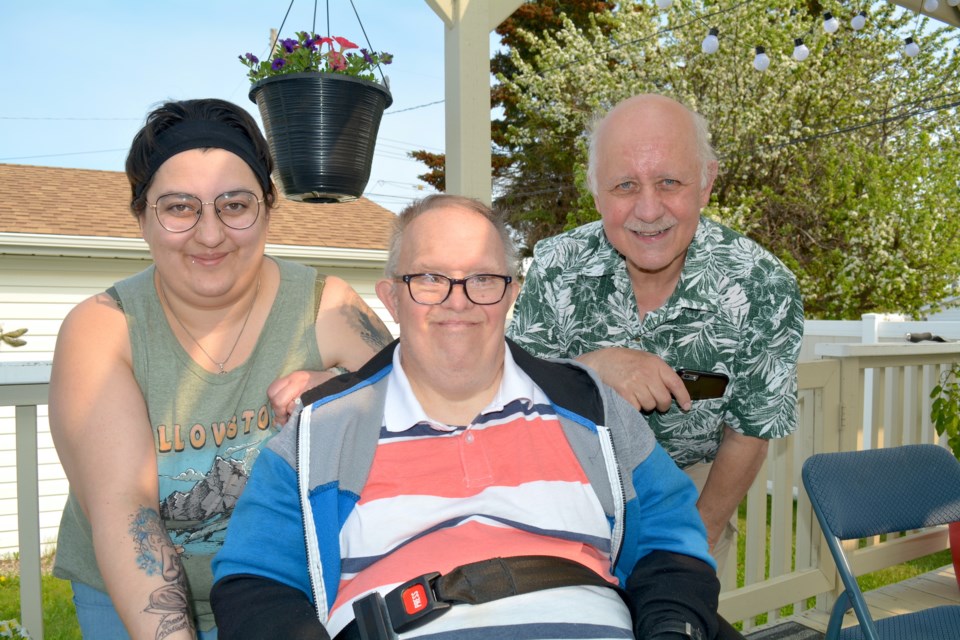WESTLOCK — People who dedicate their life to helping and supporting individuals with disabilities are being recognized for the work they do.
The Alberta Disability Workers Association (ADWA) is joining the province in celebrating Community Disability Service Workers Appreciation Week May 22-28, a declaration also made by Seniors, Community and Social Services minister Jeremy Nixon.
The Westlock Independence Network (WIN), a non-profit is one of two agencies in the town, the other is WJS Canada, that provide care for people with physical and developmental disabilities. Today, WIN supports about 50 individuals from across Westlock County and Thorhild and has previously served individuals in the Village of Clyde.
WIN program coordinator Karen Weir said the association’s goal “was to develop services in Westlock to serve the needs of people with disabilities” and was incorporated as a non-profit organization in January 1987.
Today there are about 80 community disability service workers who play an important role for the families and individuals they support. “We provide services anywhere from a couple of hours a week to 24 hours a day, depending on the needs of the individual,” said Weir. “The families of the individuals that we support are entrusting us and it’s a huge responsibility that we take very seriously. It’s an honour to be able to serve.”
For Westlock resident Leanne Huppertz and her family, the workers have made a huge difference in the life of her 24-year old son Blake who has Down Syndrome and lives on his own. He has been with WIN for about 12 years, since he was in elementary school and now lives in his own apartment with a roommate and receives 24-hour help with daily living.
“Sometimes they're your unsung heroes because the work they do is so vitally important,” said Huppertz.
“It's phenomenal to see him having that independence and living on his own. He's very involved in the community and the workers facilitate that and since he's moved to town he needs that support with cooking shopping, housekeeping, and daily tasks.”
She said Blake’s time with WIN “has been a very good experience” and noted the patience that workers who help individuals with disabilities have and the positive impact that WIN has had on Blake. “I feel very confident that they've got his best interests. I don't worry that he's in any danger or going to be compromised in any way.
“They take him out on outings, take him to camp, take him to concerts, and go to sporting events just like everybody else,” she added.
Alex Stoye, president of the ADWA board, was pleased to see public recognition for workers in this sector. “This is the first time that the work of community disability services has been formally recognized on a provincial level,” said Stoye. “A declaration such as this is a fantastic way to bring awareness to the professional and competent work of this community.”
Westlock resident Neal Shank is guardian for his 62-year old brother Robert and said having the support of WIN and their workers has made a noticeable difference in their lives.
“It’s like a good singer, when they sing from the heart you know it came straight from the heart and with these workers they have that,” said Shank. “It comes from the heart.”
He noted how workers take care of all his needs and “look after him physically, mentally and spiritually” and has seen their positive impact they have had on his brother’s life, not just with daily living but in all aspects.
“They help him to interact when things aren’t going well. They work through problems and communication,” said Shank. “You’ll see it by how happy he is. Robert is always joking with and doing things with the staff. I know they’ve made a big difference for him.”
In addition to cooking, cleaning, shopping and partaking in social activities, workers also provide support for the families. “They help me deal with it, so they connect the family and friends as well which is so important.”
Weir noted how the disability services sector has evolved over the years as the approach is “less institutional, more personalized and much more community care.” “Our primary purpose is to connect people with their community. That’s what we’re here to do, is to help people develop natural supports along with paid supports, so that they are contributing and valued members of the community,” she said.



